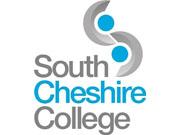South Cheshire College looks to the future with in-house legal services

In an environment where FE Colleges are subject to continuing legislative change and increasing pressure to secure alternative sources of funding, significant challenges and opportunities are created. Governing bodies must consider how to maintain governance, position the college within the FE sector, maximise the opportunities presented in terms of business investment and development, whilst meeting the needs of the local community and delivering a provision that gives value for money.
In addressing the challenges provided through legislative change colleges must continue to ensure that they act within their statutory powers. In securing funding from alternative sources colleges need to consider options and types of contractual arrangements available and negotiate favourable terms and conditions whilst managing associated risks. Any change in positioning within the FE sector must include consideration and issues associated with the most appropriate vehicle, for example, joint ventures, partnerships, and sub-contracting arrangements to mention but a few. Risks associated with capital investment must be addressed and, as a major employer, the college must keep abreast of employment legislation and rights of the staff it employs.
The role of the clerk in supporting the governing body is generally recognised as being of fundamental importance in ensuring high standards of governance, although the scope and extent of the role varies considerably from college to college. Whilst some colleges see the role as purely administrative, others have extended the role to the monitoring and support of the legal and other responsibilities of board members. South Cheshire College, by recruiting a practising solicitor, has chosen to extend the role to encompass the provision of legal services to the College, its governing body and subsidiary company. In addition to the prompt identification and resolution of any issues affecting governance from a legal perspective, this provision enables legal expertise to be on tap both to the Corporation and to management providing benefits in terms of risk management whilst reducing overall legal costs.
FE Colleges are increasingly commercial enterprises and whereas external lawyers provide impartial advice and then await further instructions, an in-house provision means that internal legal expertise now forms part of the team and advice and assistance is tailored towards the best possible commercial decision on a day to day basis. The approach is proactive and protective with input from a legal perspective from the outset. When business decisions are in the process of being made or when issues arise, there is initial legal advice and input with no additional cost being incurred, reducing/limiting any requirement for legal services to be a “distress purchase” should things not go according to plan.
What is achieved depends on the recognition that for best advantage and to add real value, the solicitor/clerk needs to be involved early and allowed to perform this role with sufficient authority and independence. It takes time for people to recognise that they have a legal service on tap that they can use day to day to assist them. At South Cheshire College, I attend the weekly senior management team meetings and assist the governing body, senior and middle management on a wide range of legal and compliance issues, advising on ways to support business decisions and address issues as they arise, providing assistance with an approach which is cost effective, practical and solution based.
The in-house provision at South Cheshire has covered a broad range of work during the past year including: supporting the governing body as it addresses strategic issues; advising on company law/corporate governance; ensuring that the College’s contracts and property rights are valid, enforceable and are enforced; drafting contracts , reviewing contracts and negotiating amendments to protect the College’s position; handling the purchase of freehold property; leasing property; addressing employment law issues; handling litigation and potential litigious matters.
Where external legal services are required, legal spend is kept under tighter control whilst ensuring that any outsourced work is cost effective and completed to the highest standards. As an informed purchaser, an in-house solicitor is well placed to secure the selection of relevant external lawyers for the task in hand and is able to instruct and brief legal counsel directly reducing both time taken and costs incurred.
Although the College supports the role through payment of the solicitor’s practising certificate, funding the Solicitors’ Regulation Authority’s requirements for CPD and provision of some essential legal resources, these costs are outweighed significantly by the reduction in the cost of external legal services. In addition, the College is benefiting from legal advice that reduces risks in areas where external legal input would not have been purchased in the past.
The development of my role as the solicitor/clerk at South Cheshire College is continuing to evolve, enabling the College to achieve high levels of compliance, reduction in its overall risk profile and significant savings in legal costs. As the FE sector moves into a more commercially aware and increasingly litigious world, South Cheshire College has taken the view that having an in-house legal service is likely to become increasingly important – is this the pattern for the future?
Evelyn Davies-Jones is head of legal services at South Cheshire College






Responses